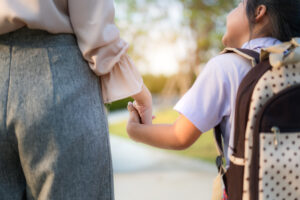BACK
“Success is not final, failure is not fatal. It is the courage to continue that counts,” – Winston S. Churchill
The world can be a frightening place for anyone, even for young children. Being in an environment that is not their home for more than 6 hours a day can be challenging for some. Going through many routines, activities and meeting different people every day could be quite stressful for some children. Therefore it is crucial that young children develop strengths, acquire skills and be prepared for future challenges.
As an educator, I strive to build or foster resilience in all my children – regardless if they are two years old or six years old. In my opinion, the best and strongest way to build resilience is to be a positive role model for children. By showing affection and giving them attention, the children feel loved and connected to you. This would also build their sense of worth, “I am valued, I am important”. In the classroom, we should always strive to listen and to understand the children; whether it is their complaints about someone or their sharing about what they did over the weekends. When we listen and understand them, the children will feel understood and accepted. This would then allow them to understand others.
A resilient child is someone who is willing to try again and not give up after making a mistake. As an educator, I believe that when we are patient, children would develop the patience to learn and to explore. The way educators react to mistakes made by children also affects their confidence. When adults overreact or make a big fuss over something, children will get the message that “it is not okay to do that and I won’t do that anymore”. Instead, calm down, get to the child, assure him that he is okay and let him see his strength. For example, when a child ran too fast and fell, approach him and tell him gently that he is running too fast. Next time, he should look where he is running to and be careful. With that, children become willing to try again, explore different ways to run so that he will not fall and eventually master the skill of running and be confident.
Children also need to develop self-control. “Children who realise that they can control the outcomes of their decisions are more likely to realise that they have the ability to bounce back. Your child’s understanding that he or she can make a difference further promotes competence and confidence,” (HealthyChildren, 2007).
Together, with the support of other caring family and community members, we can boost children’s resilience through everyday interactions and modeling. “Children need to know that there is an adult in their life who believes in them and loves them unconditionally,” (Ginsburg, 2006).



